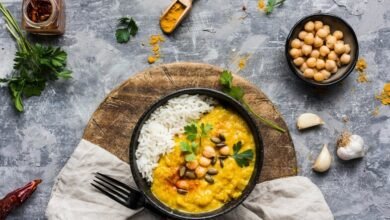How did Samantha and Vidya Balan lose weight with an anti-inflammatory diet?

News Mania Desk / Piyal Chatterjee / 8th November 2024
You’re not the only person who struggles with weight loss and finds that, despite your best efforts, losing those pounds feels like a never-ending nightmare. A lot of folks go through that discouraging cycle when diets and rigorous exercise don’t seem to help.
Even Indian celebs have spoken out about the tedious cycle of attempting to lose weight without seeing any change. For women with PCOS, the battle is frequently even more difficult, as losing weight can be very difficult.
The ‘anti-inflammatory diet’ is a popular trend that seems to have helped some on social media break free from this pattern.This occurred when actress Vidya Balan talked about how this diet helped her lose the weight she had been pursuing for years in a now-viral video.
In a conversation with Galatta Plus, she revealed, “You know, all my life, I’ve struggled to be thin. I’ve dieted and exercised relentlessly. Sometimes I’d lose weight, but it would always come back. Then, early this year, I met a nutrition group called Amura (Amura Health) in Chennai. They told me it’s just inflammation, not fat. So, they put me on an anti-inflammatory diet, and it worked beautifully – the weight just fell off as they removed foods that didn’t suit me.”
Vidya also mentioned she hasn’t worked out at all this year, yet the anti-inflammatory diet has delivered remarkable results.Similarly, Samantha Ruth Prabhu recently shared her experience with a similar approach. During an Instagram Q&A, she mentioned she’s also on a “strict anti-inflammatory diet”. This came after people commented on her weight, urging her to “bulk up”.
Samantha responded with, “Another weight comment. I saw an entire thread discussing my weight. If you must know, I’m on a strict anti-inflammatory diet, which is essential for managing my condition. It keeps me within a specific weight range that works best for my health (myositis). Let’s stop judging people – live and let live. It’s 2024, after all.”
Both actors emphasize that, particularly for people with underlying medical disorders, weight problems might occasionally be more related to inflammation than fat. However, what is this diet and how should it be followed? We consulted professionals.
Mumbai-based nutritionist and wellness specialist Debjani Gupta tells India Today that understanding the factors that contribute to inflammation in our bodies is essential to understanding anti-inflammatory diets.She adds that inflammation is a defense mechanism found in all living things, including plants, animals, and humans. “Everyone has an innate reaction system that responds to potentially harmful external stimuli. Any foreign substance that interferes with the body’s normal functioning could be the cause of this, she says.
There are different ‘triggers’ of inflammation, Debjani continues. In addition to any disease or injury, a poor diet is a common source of internal inflammation. Chronically bad eating patterns, stress from long workdays, and compromising one’s lifestyle might result in inflammation . Another cause of inflammation is stress hormones like cortisol.
“It disrupts insulin function, affecting blood sugar control and ultimately impacting other hormones, especially the thyroid, which manages metabolism. As a result, when the body enters an inflammatory state, we need to take steps to counteract it,” she further says.
According to the specialists we consulted, an anti-inflammatory diet plate consists of including specific items into your diet while excluding others entirely.
An anti-inflammatory diet, for example, is high in fruits like berries and vegetables like spinach, turmeric, and ginger, which reduce inflammation, according to Parmeet Kaur, head and chief dietician and nutritionist at Marengo Asia Hospitals in Gurugram.
“Eat whole grains, such as brown rice and millet, healthy fats from nuts, seeds, and olive oil. One should include more Omega-3 rich foods. Omega-3 is the most powerful anti-inflammatory agent, like flax seeds, chia seeds or fish, which is the best source. Other aromatic spices possess strong anti-inflammatory properties, so be sure to include them in your diet, turmeric and garlic,” she adds.
According to Dr. Archana Batra, a certified diabetes educator and dietitian, an anti-inflammatory diet frequently needs to be tailored to the individual’s needs and is most effective if the underlying cause of inflammation has been identified.
“These diets are also specialised for one’s needs. For example, if a person is gluten intolerant, then he/she should eliminate gluten. Otherwise, it is not important to eliminate any particular food group or anything like gluten or lactose in the diet. If he or she has any issue with these things, then only one needs to eliminate them. Certain oil seeds are also considered inflammatory, like those oils which have more Omega-6 ratio than Omega-3 are considered inflammatory,” she says.
There are simple methods to determine whether someone is “inflamed,” notwithstanding Dr. Batra’s assertion that everyone can choose an anti-inflammatory diet because it has no negative effects (if followed correctly).
Inflammation can be either acute or persistent, she notes. It is rather typical for acute inflammation to occur whenever there is an accident or trauma. The purpose of acute inflammation is to promote healing and hasten the healing process. In a way, it helps because, for instance, when a mosquito bites, that area swells. Chronic inflammation, however, can lead to health problems if it persists.
According to her, inflammation in the body may be the source of persistent exhaustion symptoms brought on by “unknown causes,” trouble losing weight, or digestive problems for which you are unable to find a solution.There may be indications of inflammation if you are sick often and occasionally have infections. In this situation, you can follow an anti-inflammatory diet.
According to Debjani, other tests that can be important markers of inflammation include the Homeostatic Model Assessment for Insulin Resistance (HOMA-IR), Erythrocyte Sedimentation Rate (ESR), Vitamin-D, and High-sensitivity C-reactive Protein (hs-CRP).
In contrast to other diets like the Mediterranean, keto, or calorie deficit, this strategy appears to be successful when followed properly and with expert assistance. Therefore, before beginning an anti-inflammatory diet, do get in touch with a healthcare provider.






